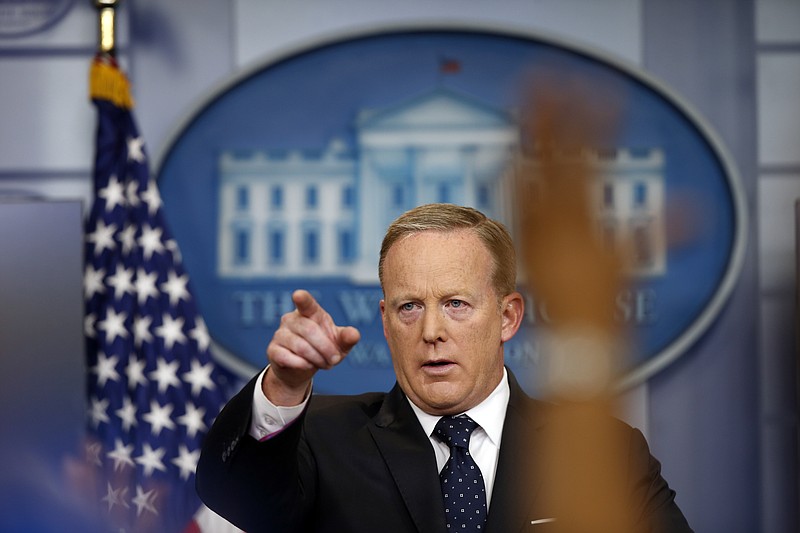WASHINGTON (AP) - President Donald Trump's White House is putting the "brief" in press briefings.
Press secretary Sean Spicer spoke for 30 minutes Tuesday and didn't answer a number of questions, including whether the president believes Russia interfered in the 2016 election and whether Trump had seen the hotly debated Senate health care bill.
Once more freewheeling exchanges, White House press briefings have been shrinking both in length and content as Trump's senior aides clamp down on information and contend with the president's preference for speaking directly to his fan base.
The administration has erected other barriers to transparency as well, such as refusing to make its visitor logs public. And Trump hasn't held a full press conference since February or participated in interviews since the end of April.
The White House's less-is-best approach to public information has become more pronounced since Trump returned from his nine-day, five-nation tour in late May.
White House officials believed the trip garnered good coverage even though the president eschewed a longtime presidential tradition of holding a news conference overseas and provided only limited public press briefings. About the same time, probes into Russian election interference and the Trump campaign's possible role in it provided fresh incentive for the president and White House officials to avoid question-and-answer sessions sure to be dominated by the unwelcome topic.
Those developments may have reinforced what was already on Trump's mind: On May 12, he had tweeted, "Maybe the best thing to do would be to cancel all future 'press briefings' and hand out written responses for the sake of accuracy???"
White House communications officials "obviously feel it has ceased to pay dividends" to follow their predecessors' press strategy, said Eric Dezenhall, who worked on President Ronald Reagan's communications team and leads a public relations firm in Washington. "They've decided to bypass the media completely and stop pretending there's anything to gain."
Dezenhall said while he understands the strategy, "it's terrifying from a democracy standpoint."
David Boardman, chairman of the Reporters Committee for Freedom of the Press, said Trump's method of communicating via Twitter creates a need "to follow up on those 140-character proclamations with questions."
He said a trend toward less transparency has rippled through all levels of government, and the approach is set at the top.
"For many decades, it has been accepted that the White House is the people's house, and that the administration has an obligation to come before the people as represented by the press," Boardman said. "This is far more than just a spat between reporters and the White House. It's something people really ought to care about."
Trump's frequent social media posts - more than a dozen Monday and Tuesday alone - are read by millions of Twitter followers. "The Fake News Media hates when I use what has turned out to be my very powerful Social Media - over 100 million people! I can go around them!" Trump boasted last week on Twitter.
"The president has a long history of communicating directly with people through social media that has worked out very well for him in the past," Katrina Pierson, a former Trump campaign spokeswoman, said. "Many people are no longer getting their information from traditional media sources anyway."

